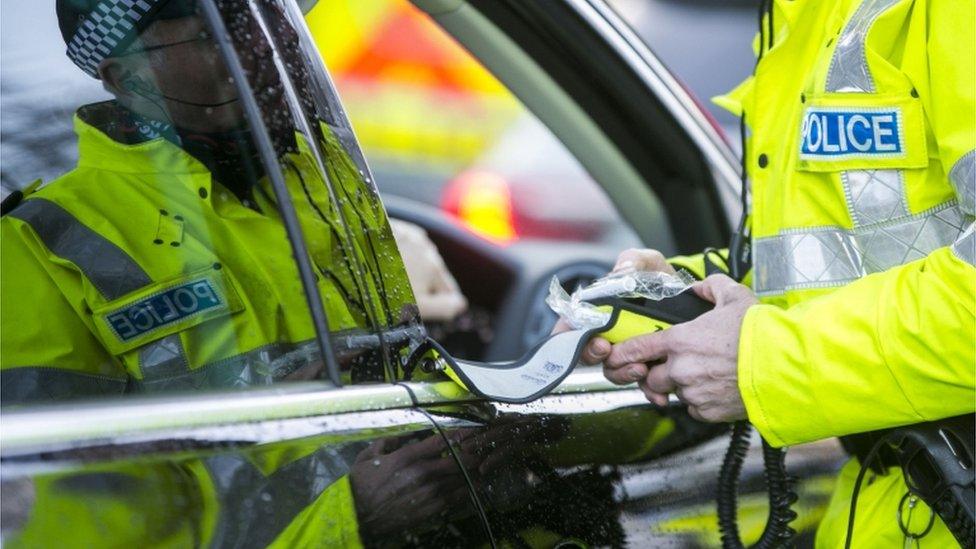Drug-drivers face Christmas crackdown to tackle increase
- Published
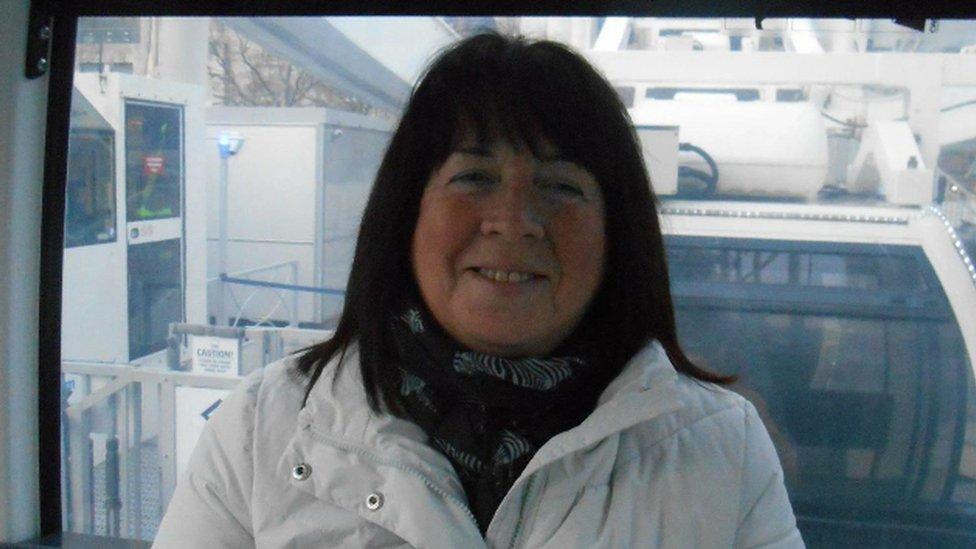
Stella Osborn was a passenger in a car which crashed with a drug-driver in 2015 and died at the scene
Police will stop drivers at the roadside in the run-up to Christmas as figures show thousands of motorists tested positive for drugs.
Three in five mouth swabs used in a campaign last December showed the presence of cocaine and cannabis.
The National Police Chiefs Council (NPCC) said roadside checks for drink and drugs would be done at Christmas when many people go to parties.
Drug-driving crashes across Great Britain have doubled in five years.
There were 1,321 accidents where drivers were "impaired" by "medicinal or illicit" drugs in 2018, according to Department for Transport (DfT) figures. This compares with 594 in 2014.
Forces said they were getting better at detecting drug-driving but road safety charity Brake said new equipment needed to be introduced to catch more offenders.
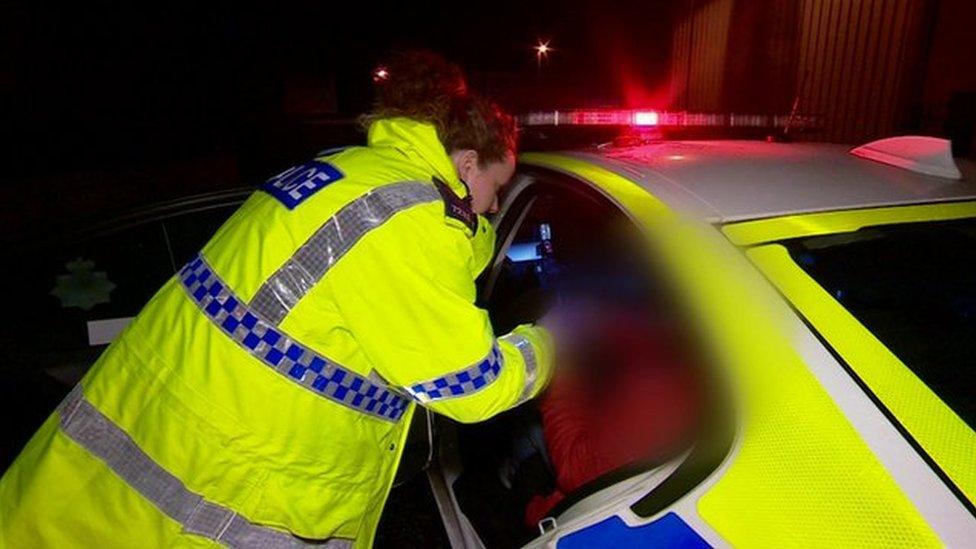
Accidents involving drug-impaired drivers have risen over five years
Last December more than 3,000 drivers in England and Wales were screened for possible drug-driving with 1,871, nearly three in five of those tested, showing positive for drugs.
This followed nearly 1,700 positive results in December 2017 and almost 1,300 in 2016.
The roadside checks, which also test for drink-driving, last year involved almost 76,000 vehicles stopped and nearly 72,000 breath tests administered. A total of 4,656 arrests were made for drink or drug-driving.

'It was like I'd been shot'
Richard Whitehouse said his "whole world was turned upside down" in 2015 when his mother, Stella Osborn, died after a crash with a drug driver on Mother's Day in Dorset.
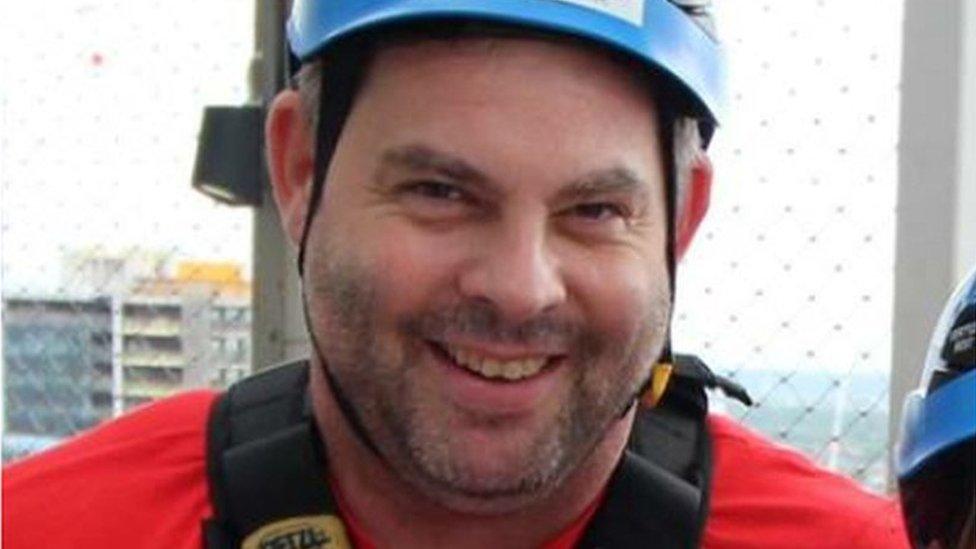
After his mother's death, Mr Whitehouse did a charity abseil to raise money for road safety campaigners
"I came home from work to find my wife in tears," said the 45-year-old from Market Weighton in East Yorkshire. "It was like I'd been shot when she told me, I didn't know what to think."
The driver later pleaded guilty to causing death by careless driving over the prescribed limit and driving an unlicensed vehicle and was jailed for six years.
"You may have no intention to kill someone, but that's the potential," Mr Whitehouse said.
"Having spot tests available for police is good, but they're not the solution, it's about stopping people getting behind the wheel if they're impaired, whether it be by phones, animals, or drink and drugs," he added."

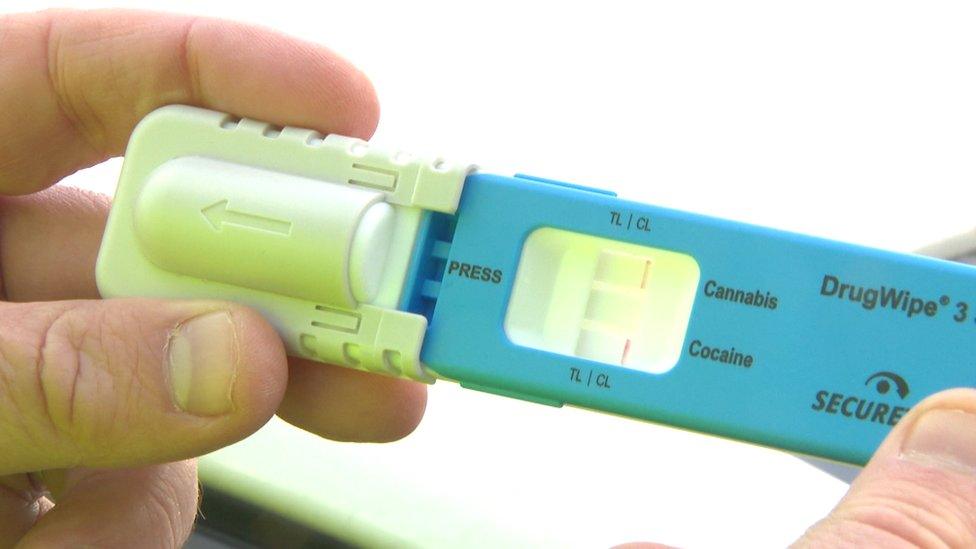
A mouth swab tests a driver for cannabis and cocaine at the roadside
Operations to clamp down on drink and drug-driving are run across the country over summer and Christmas.
West Midlands Police confirmed it would be doing roadside checks.
Sgt Jon Butler said: "While we want people to enjoy the festive season we won't tolerate those who are irresponsible and get behind the wheel over the limit."
Northumbria Police has bought hundreds of new portable drug testing kits, with volunteer special constables carrying out stop checks in Newcastle city centre and Gateshead town centre.
They will also be testing taxi drivers operating in the city to ensure they aren't putting innocent lives at risk by driving while high on drugs.
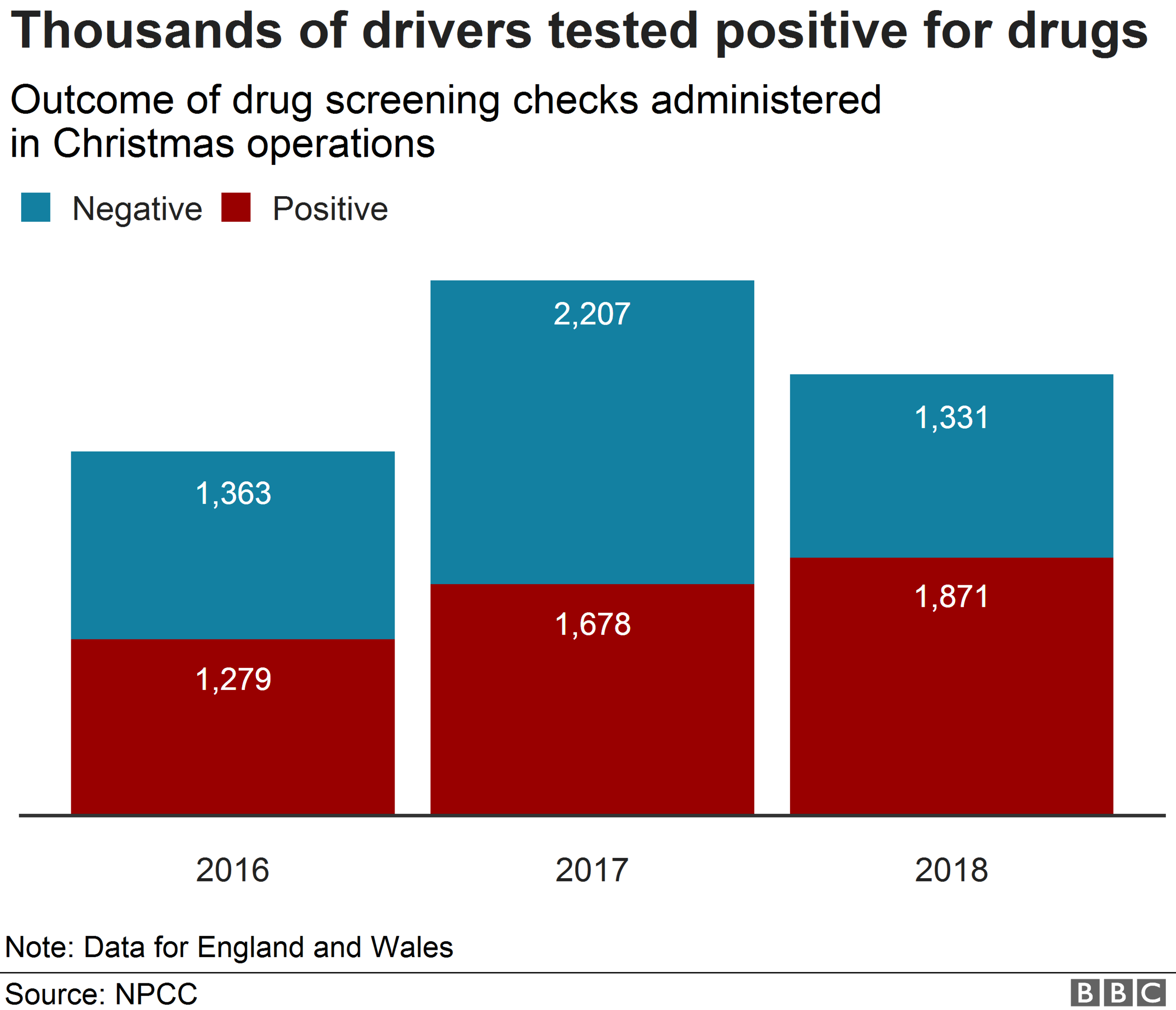
Analysis of Department for Transport (DfT) figures by the BBC shows some areas have seen the number of accidents where drivers were "impaired by drugs", either illegal or medicinal, rise significantly since 2013.
The figures showed:
In Surrey police officers found drugs were a contributing factor in 53 accidents in 2018, up from 27 the year before and 14 in 2013
Police in Kent attended 47 accidents involving drug-impaired drivers or riders last year, up from 39 the year before and 17 in 2013
Areas which saw a large increase in drug driving accidents in the latest year include East Sussex, which had 20 in 2016 and eight in 2017, rising to 34 in 2018
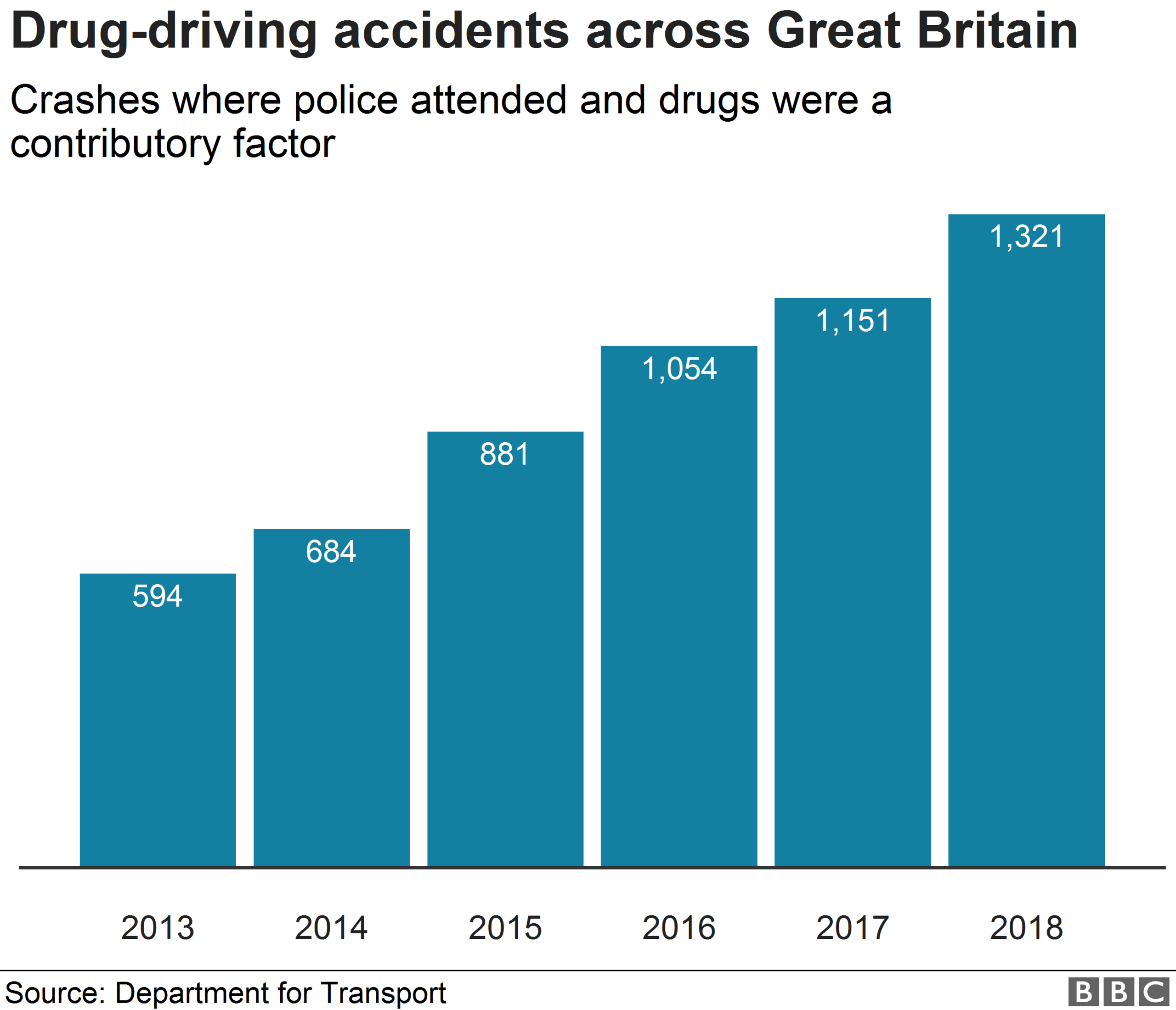
If officers suspect a driver is impaired by drugs, external they can require them to do a test, including walking in a straight line. They can also use a roadside drug kit to screen for cannabis and cocaine.
The driver can also be taken to a police station for further tests.
Forces in England and Wales have been using mouth swab kits since 2015 while Scotland introduced them in October 2019.
However, Brake said roadside tests needed to be able to detect more types of drugs.
A spokesman said: "The Government must prioritise gaining approval for roadside testing devices that can detect all illegal drugs. At present, just cannabis and cocaine can be detected at roadside and this is a clear gap in enforcement that must be filled."
Ch Insp Michael Hodder, from the Surrey and Sussex Road Policing Unit, said the police's ability to detect drug-driving had "improved dramatically" with the introduction of roadside testing kits in 2015.
"The increase seen in the DfT figures does not necessarily mean that there were more people on Surrey's roads in 2018 using illegal or prescribed drugs and then driving," he said.
Chief Constable Anthony Bangham from the NPCC said forces would take all available action against drivers who had a "selfish disregard for their own safety and the safety of others" by drug-driving.
"We remain concerned at the number of those who feel this risk is worth taking and we will continue to pursue them," Mr Bangham said.
- Published11 October 2019

- Published6 December 2018
